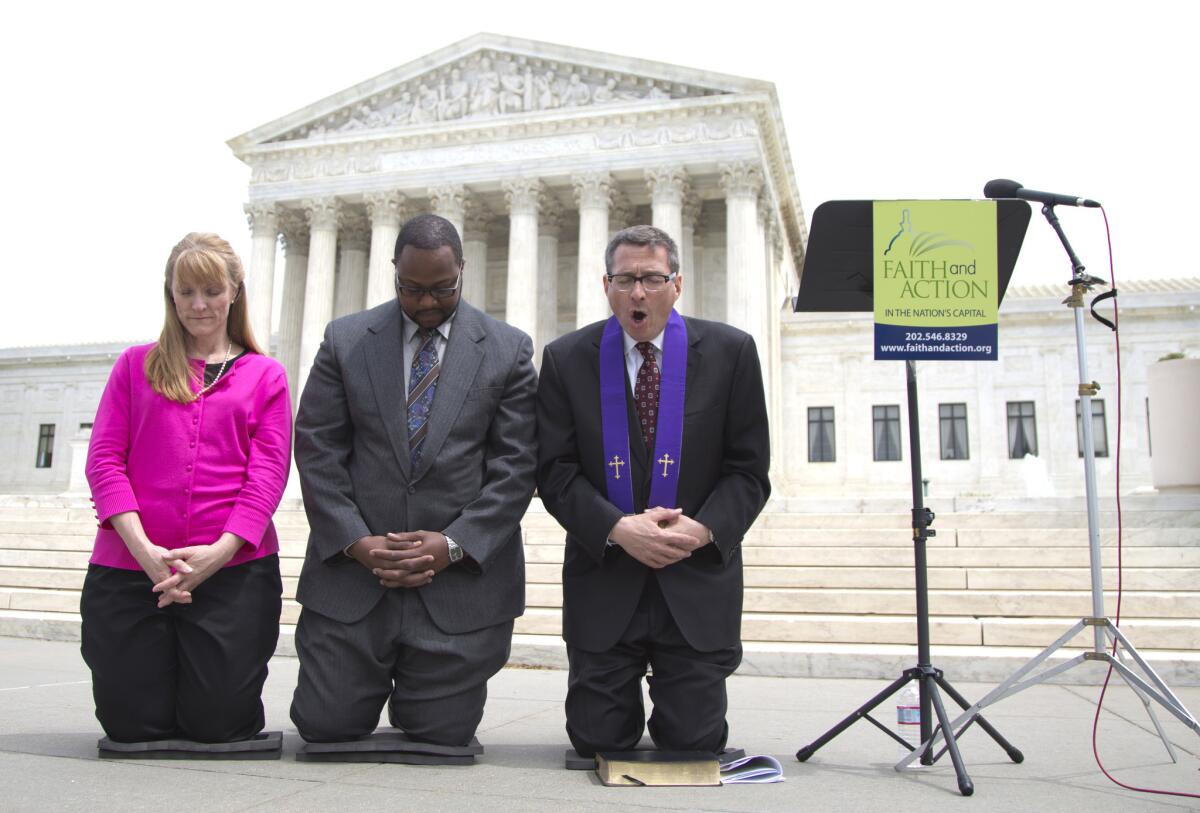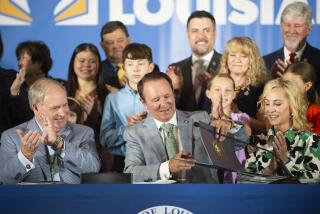Editorial: The Supreme Court got it wrong on prayer at public meetings

Local governments should not invite members of the clergy to pray at public meetings. Why not? Because people of all religious beliefs — and people with no religious beliefs — come to such meetings to seek the aid of their elected representatives. Even the most ecumenical of prayers will make some listeners feel excluded. And prayers that invoke the doctrines of only one faith are especially offensive.
Yet on Monday, a narrow majority of the Supreme Court gave a constitutional green light to such practices.
Beginning in 1999, the town of Greece, N.Y., invited local clergy members to serve as “chaplain of the month” and offer “our prayer” at town meetings. Between 1999 and 2007, every person invited to offer a prayer was a Christian, and the prayers often mentioned Jesus. For example, one guest chaplain prayed: “We look with anticipation to the celebration of Holy Week and Easter.... We acknowledge the saving sacrifice of Jesus Christ on the cross.”
Two residents, one Jewish and one an atheist, filed suit, demanding that prayers at the meetings refer only to a “generic God.” The U.S. 2nd Circuit Court of Appeals refused to go that far, but it concluded that, even though the town eventually allowed a few non-Christians to offer prayers, “an objective, reasonable person would believe that the town’s prayer practice had the effect of affiliating the town with Christianity.”
Given its precedents, it was unlikely that the Supreme Court was going to ban prayer at government meetings altogether. Next best would have been a ruling that only nonsectarian prayers could be offered. Or, at a minimum, the justices could have ruled that local officials must take steps to ensure that prayers — and the clergy who offered them — reflect a wide variety of religions.
Instead, by a 5-4 majority, the court gave local governments an excessively wide berth. Not only did it rule in favor of Greece; Justice Anthony M. Kennedy’s majority opinion relaxed the standard for assessing whether a prayer at a governmental meeting violates the 1st Amendment’s ban on an establishment of religion.
In a 1983 ruling, the court allowed the Nebraska Legislature to have a chaplain open its meetings, but Chief Justice Warren Burger noted approvingly that the chaplain had removed all references to Jesus from his prayers after a complaint from a Jewish legislator. But in Monday’s ruling, Kennedy said that the Nebraska prayer was upheld not because it espoused “generic theism” but because legislative prayer was deeply rooted in history. He noted that one of the U.S. Senate’s first chaplains offered a prayer seeking “the grace of Our Lord Jesus Christ.”
True, but this country is considerably more diverse religiously than it was in the 18th century. As Justice Stephen G. Breyer noted in his dissent, the House of Representatives advises guest chaplains to remember that the House “is comprised of members of many different traditions.”
Kennedy insisted that Monday’s decision doesn’t authorize prayers that “denigrate nonbelievers or religious minorities, threaten damnation or preach conversion.” But a guest chaplain who prays in Jesus’ name at a town meeting doesn’t have to threaten non-Christians with hellfire to make them feel like outsiders. As Justice Elena Kagan said in her dissent, the Constitution presupposes that “our public institutions belong no less to the Buddhist or Hindu than to the Methodist or Episcopalian.” The court has betrayed that principle.
More to Read
A cure for the common opinion
Get thought-provoking perspectives with our weekly newsletter.
You may occasionally receive promotional content from the Los Angeles Times.










